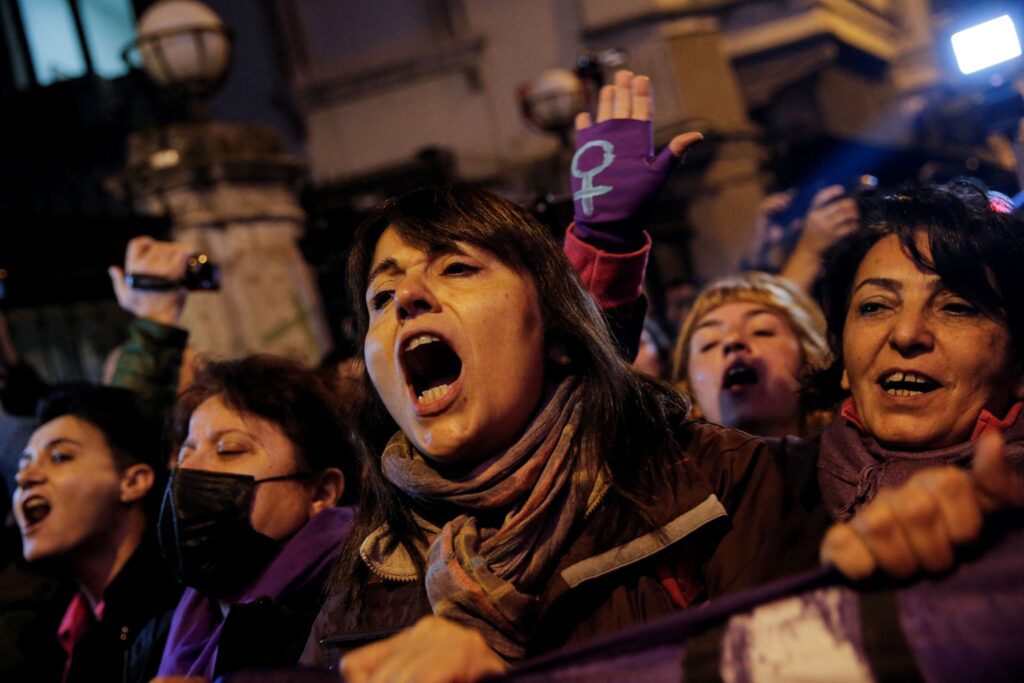One in three women in the world today is a victim of physical or sexual violence at the hands of someone close to her. And the Euro-Mediterranean region is not spared. This tragic fact confirms (if proof were needed) that in the 21st century, gender-based violence remains a scourge to be fought. On both shores of the Mediterranean.
Although gender-based violence most often occurs in the private sphere, it is political in nature, facilitated by the absence of an egalitarian legislative framework to protect survivors and provide them with justice. The 16 days of activism initiated yearly from 25 November to 10 December by the United Nations are an opportunity to recall the in-depth work carried out by civil society organisations over the years to combat this violence. Since January 2023, EuroMed Rights has been listing legislative gender discrimination in country fact sheets, with the support of its members and partners.
Two distinct forms of discrimination can be observed in several countries: those incorporated into national laws (de jure discrimination) and those caused as a result of a patriarchal interpretation of laws or the non-application of existing laws in patriarchal societies (de facto discrimination). Unfortunately, there are many examples of both in Euro-Mediterranean countries.
Take for instance Personal Status Laws – also known as Family Code – in place in many countries such as Morocco, Tunisia, Algeria, Lebanon, Egypt, Palestine and Jordan. Patriarchal and unequal, these laws perpetuate male domination, establishing a system of guardianship of men over women. The best example is probably inheritance rights: in all these countries, the Family Code stipulates that women are not able to inherit the same amount as men. Because this legal and de facto discrimination perpetuates gender-based violence, it must be abolished.
As for the rules in place or in the process of being adopted in the Euro-Mediterranean region to better combat such violence, they are slow to take effect. The weak legal arsenal already in place or in the process of being adopted is now threatened by the multiplication of anti-gender movements in the region, as shown by EuroMed Rights’ Backlash map.
These movements are not insignificant. The Istanbul Convention, for example, which provides women with a protective legal framework against gender-based violence, is being undermined by such movements, which dispute the use of the word “gender” and advocate so-called “traditional values” based on patriarchal domination. In July 2021, President Erdogan’s government decided to withdraw Turkey from the Istanbul Convention.
The European Directive on violence against women and domestic violence, currently undergoing inter-institutional negotiations, is also the subject of political disagreement. There is an ongoing debate about which crimes should be covered by the Directive; whether or not rape should be included; gender-related terminology; and the form in which protection for victims of violence should be provided. If a consensus is not reached, this debate could lead to a recasting of the Directive, which would no longer protect women from all forms of violence.
With less than six months to go before the European elections, which are crucial for the future of progressive forces in Europe, the European Union must not give up. A massive legal and financial investment must be made by Europe and its partners in the Euro-Mediterranean region to promote prevention and justice for women victims of gender violence.

